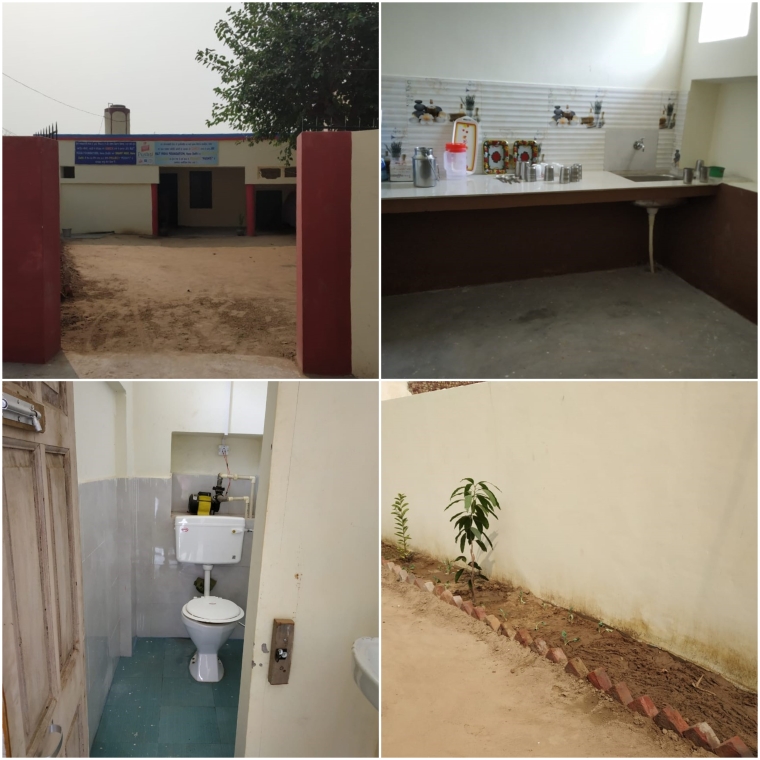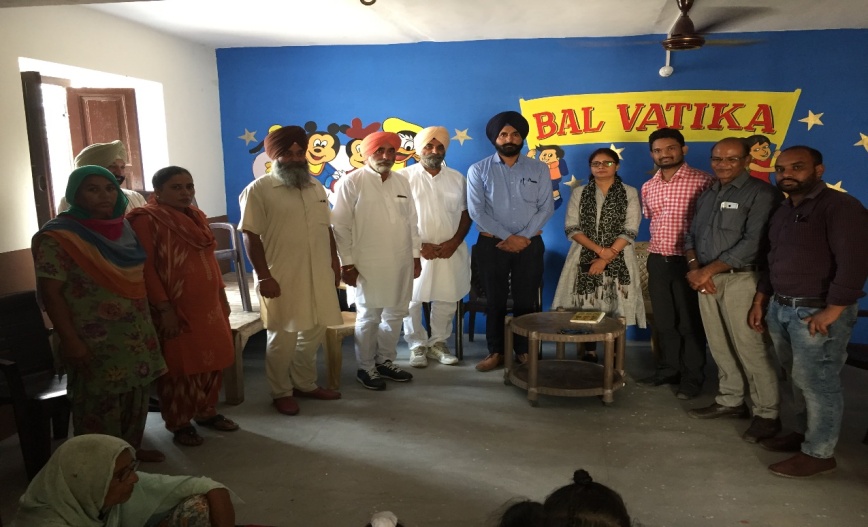When the concept of sustainable communities emerged, its ideation was very different from what it is now. Our decade saw a dire need to recognize Sustainable Cities and Communities and the same also found an echo in SDG Goal 11, which was conceptualized at the United Nations Conference back in 2012.
Since then, the components of Sustainable Communities have started to loosely revolve around inclusivity, safety, design, built, connectivity and socio-economic adaptability. But sustainability means more than this. It means building infrastructure that is accessible, uncompromising and safe. It means reducing the gap between resourceful infrastructure and the inclination of community members to access the same.

With this goal in mind, Project PUSHTi under GSK’s ‘Mission Health’, SHARP NGO and JSI R&T Foundation as Technical Partner set on a mission to improve the infrastructure and operations of Anganwadi centers across intervention villages of the Nabha block, Punjab. Project PUSHTi supports the Government to improve maternal and child nutrition in the 1000-day period of life.
Ageti Village is a Project intervention village and the Project’s model village located at a distance of 8 kilometers from Nabha town in Punjab. Due to constant wear and tear, the Anganwadi building had become unsuitable for daily activities and an appalling need for revamping was assessed. This was starkly opposite to the promise of a better quality of life, as recognized under SDG Goal 11.
After architectural evaluation, it was charted that the initial infrastructural planning of the Anganwadi situates a generous classroom with an external garden, washing and toilet facilities. After several years in a dilapidated environment, the roof had collapsed and knee-deep water often accumulated in and around the Anganwadi. The base structure thence could be left unhampered.
Another problem was the consequent non-functionality of the AWC during the time span of the renovation. Team PUSHTi arranged a substitute land for the Anganwadi workers with the help of the local governing body to ensure unhindered operations. It then became possible to achieve functionality and sustainable infrastructure simultaneously.
Spread across the period of 6 months, the refurbishment was funded by the village Panchayati Raj and GSK-CH; and facilitated by Project PUSHTi. Intervention activities included plastering, installation of new windows for light and ventilation, sustainable waste stone flooring, new roofing, washroom facilities, and attractive wall paintings.
The Anganwadi has now become a site of innovation, intervention, and information for all members of the community. Though simple and compact, the new AWC is bright, airy and appealing. There are interactive wall paintings for the kids. The bathroom is well equipped with tiling, electricity as well as primary sanitation facilities. Regular discussions and workshops are organized on issues of Nutrition, Healthcare, and WASH.

The success of this Anganwadi renovation lies in getting together Community Leaders, Government Officials from ICDS and other departments for a common goal. PUSHTi project sees this as a monumental achievement of the local leadership, block administration, and the project team.

This will be recognized as a major step by SHARP NGO and Team PUSHTi towards Sustainability and accessibility.
Written by: Juhi Arora & Mahima Mehra, SHARP NGO

